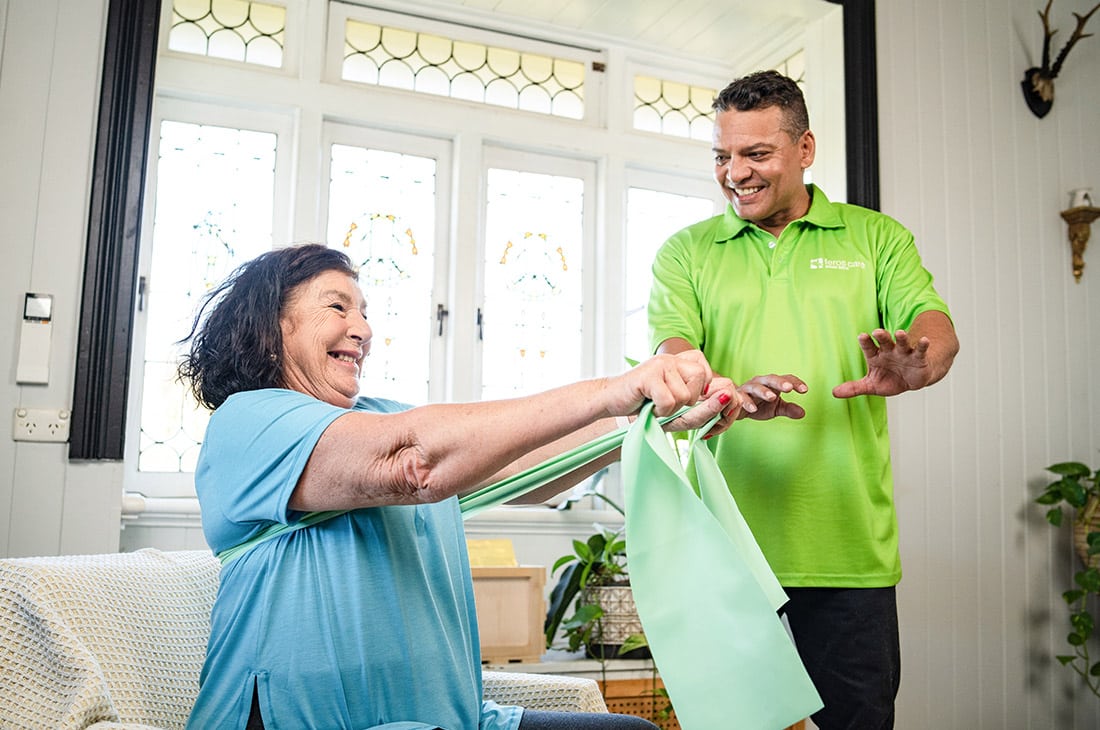The Role of Home Care Providers in Australia in Sustaining NDIS Plan Managers and Caregivers
The Role of Home Care Providers in Australia in Sustaining NDIS Plan Managers and Caregivers
Blog Article
How In Home Care Givers Address the Unique Obstacles and Emotional Requirements of Families Seeking Assistance for Their Loved Ones
At home caregivers play a critical role in browsing the intricacies encountered by family members looking for support for their liked ones. By comprehending distinct family dynamics and providing customized psychological support, these professionals not only address prompt treatment needs but additionally cultivate an environment of trust and open interaction. This technique is necessary in handling the emotional pressure typically experienced by families, as it recognizes their worries and verifies their experiences. The subtleties of this connection extend past simple caregiving; the effects for household health and caregiving effectiveness warrant even more exploration.
Comprehending Family Members Characteristics
Recognizing family members characteristics is important for giving effective at home care, as each household runs within an unique set of connections and interactions. These characteristics incorporate numerous elements, consisting of interaction designs, duties, and class structure that influence exactly how care is provided and obtained. The caretaker needs to recognize these variables to guarantee that care plans line up with the household's worths and assumptions.
Various households may show distinctive patterns of communication, such as joint techniques or ordered structures. In some households, a key decision-maker might hold substantial impact, while in others, decisions may be extra democratic. Understanding these patterns helps caretakers customize their strategies to fit the family's specific demands.
In addition, cultural backgrounds play a crucial duty in forming household dynamics. Caretakers need to be culturally qualified, recognizing and appreciating diverse techniques and ideas that may influence care preferences.
Inevitably, a detailed understanding of household dynamics promotes enhanced interaction, cultivates trust fund, and improves the caregiver's capacity to support the family successfully. By acknowledging the intricate web of duties and connections, caretakers can produce an encouraging atmosphere that advertises well-being for both the private receiving treatment and the family in its entirety.
Offering Emotional Assistance
Offering psychological support is a vital part of in-home treatment that significantly improves the well-being of both the individual obtaining care and their family participants. In the context of caregiving, emotional support entails active listening, empathy, and recognition of sensations. Caregivers are trained to identify the emotional battles that families face, such as anxiousness, regret, and seclusion, and to provide a thoughtful presence that relieves these burdens.
By fostering open communication, caregivers create a risk-free area for relative to share their worries and worries. This discussion not just urges emotional launch yet additionally reinforces trust fund between the family members and the caretaker. In addition, caregivers can supply sensible strategies to help families manage anxiety and advertise durability.

Inevitably, the psychological support provided by at home caretakers enhances the top quality of life for both clients and their families, advertising a much more compassionate and understanding caregiving setting. This alternative approach makes certain that psychological needs are addressed together with physical health and wellness considerations.
Taking Care Of Daily Care Tasks
Taking care of everyday treatment tasks is an essential element of at home treatment that guarantees people receive the assistance they need to maintain their wellness and freedom. Caregivers play an important duty in assisting with activities of day-to-day living (ADLs), which include showering, clothing, brushing, and dish prep work. By handling these duties, caretakers help ease the physical and emotional worries that families may face while caring for their loved ones.
In enhancement to individual treatment, caregivers are also entrusted with drug management, making sure that customers follow prescribed routines and does. This oversight is essential for preserving wellness and avoiding negative impacts from missed out on or wrong drugs. Caregivers commonly help with mobility, providing support for customers moving around their homes, thus minimizing the danger of falls and enhancing total safety and security.

Cultivating Open Interaction
Efficient administration of everyday care tasks often depends upon the high quality of interaction between caretakers, customers, and their families. Open up communication fosters an environment where issues, preferences, and comments can be openly traded, making certain that care is customized to meet specific requirements. Caretakers ought to focus on routine check-ins with both customers and their families, facilitating discussions that address any issues or modifications in treatment demands.
Making use of different interaction approaches-- such as in person meetings, phone telephone calls, and composed updates-- can enhance understanding and supply households with peace of mind. It's important for caretakers to actively pay attention, showing compassion and respect for the psychological landscape of the family members. Motivating inquiries from family participants can also assist make clear care plans and enhance the caregiver's dedication to transparency.
In addition, maintaining open lines of communication makes it possible for caregivers to identify and react promptly to any changes in a customer's health and wellness standing or check this site out emotional wellness. This positive strategy not only enhances the caregiver-client vibrant but also encourages family members to get involved proactively in the care process. Inevitably, cultivating open interaction is essential for enhancing the quality of in-home care and promoting a helpful ambience ndis support coordinator for all included.
Structure Depend On and Relationships
Depend on is the foundation of successful in-home care, as it establishes a foundation for meaningful connections in between caretakers, clients, and their households. Structure this depend on calls for consistent, transparent communication and a real dedication to the health of those included. Caregivers should demonstrate reliability via preparation, adherence to care strategies, and responsiveness to the needs and preferences of clients.
To cultivate depend on, caregivers should engage in energetic listening, guaranteeing that households feel listened to and recognized. This includes not only resolving prompt worries however also preparing for future demands, therefore equipping households and enhancing their feeling of control. Establishing rapport via shared experiences and respectful communications can better solidify these relationships.
Moreover, caretakers should be educated to acknowledge and address the psychological complexities encountered by families. By revealing empathy and empathy, they can relieve anxieties and unpredictabilities, strengthening count on. Normal updates and check-ins with member of the family can also boost transparency, permitting them to feel involved and educated about their liked one's care.
Ultimately, developing trust fund and nurturing connections in at home treatment is a collaborative procedure that considerably influences the quality of care supplied, cultivating an encouraging environment that benefits every person entailed.
Conclusion
In-home caretakers play a crucial function in resolving the unique challenges and emotional requirements of households. By comprehending family members dynamics, providing emotional support, and promoting open interaction, caretakers enhance the overall caregiving experience. Their capability to handle daily treatment tasks while building my sources count on and strong connections cultivates a helpful setting for customers and their households. Eventually, the caring interaction of caretakers considerably adds to improved well-being and resilience for those navigating the complexities of caregiving.
Recognizing household dynamics is important for providing effective at home treatment, as each family runs within an one-of-a-kind set of communications and connections.Offering psychological support is a vital component of in-home treatment that considerably boosts the wellness of both the individual obtaining treatment and their family participants. By taking on these responsibilities, caretakers assist alleviate the physical and psychological worries that households might deal with while caring for their enjoyed ones.
Efficient management of day-to-day care jobs frequently pivots on the quality of interaction between caretakers, clients, and their households - home care providers australia.Trust fund is the cornerstone of effective in-home treatment, as it establishes a foundation for purposeful relationships between caretakers, customers, and their households
Report this page